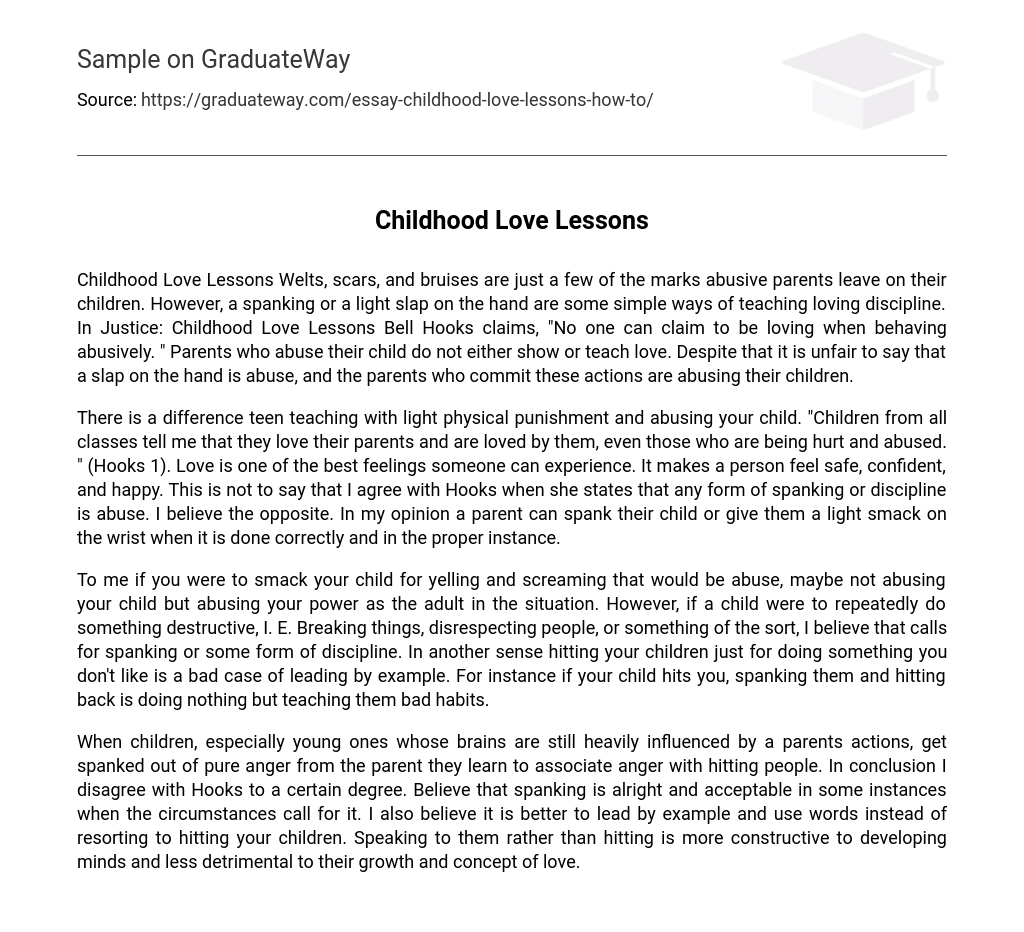Welts, scars, and bruises are marks that abusive parents leave on their children. However, a spanking or a light slap on the hand are ways of teaching loving discipline. In “Justice: Childhood Love Lessons” by Bell Hooks, it is claimed that no one can be loving while behaving abusively. Therefore, parents who abuse their child fail to show or teach love. Nonetheless, it is unjust to categorize a slap on the hand as abuse, and the parents who engage in such actions are indeed abusing their children.
In accordance with Hooks (1), there exists a differentiation between instructing via gentle physical punishment and child maltreatment. Regardless of experiencing pain and mistreatment, children from all socioeconomic backgrounds affirm their affection for their parents and the reciprocation of that love. Love is an influential sentiment that imparts sensations of safety, confidence, and happiness. Nevertheless, I hold a contrary opinion to Hooks’ claim that any type of spanking or correction equals abuse. From my perspective, when executed properly and in suitable situations, parents can employ spanking or a light tap on the wrist as a means of discipline.
Abuse can be defined as using power inappropriately, such as smacking a yelling and screaming child. However, disciplining a child who repeatedly engages in destructive behavior, like breaking things or disrespecting others, may call for spanking or other forms of discipline. Nevertheless, hitting your children simply for not liking their actions sets a negative example. For example, if your child hits you, retaliating with a spanking only teaches them negative habits.
When children, especially young ones, have their parents spank them out of anger, they learn to associate anger with physical harm. In conclusion, I partially disagree with Hooks’ viewpoint. I believe that spanking can be acceptable in certain situations where it is warranted.
Furthermore, I am of the opinion that demonstrating proper behavior and communicating effectively with words is preferable over using physical force on one’s children. Engaging in conversation rather than resorting to violence can lead to positive development of their intellect and minimize any negative impact on their understanding of affection.





